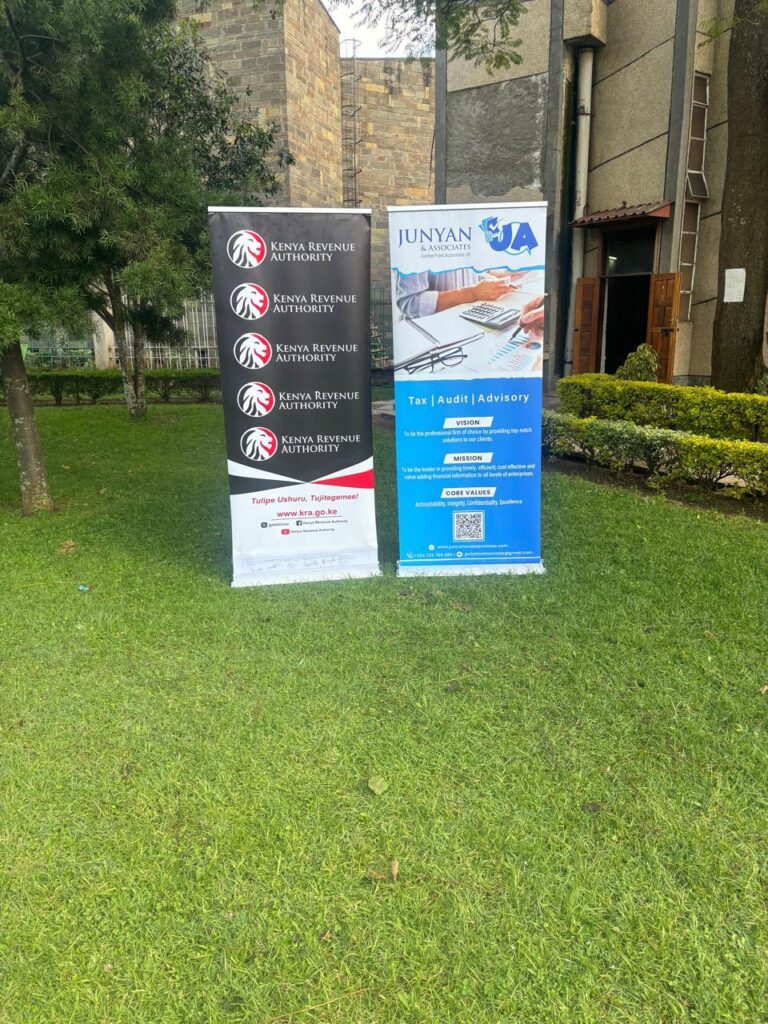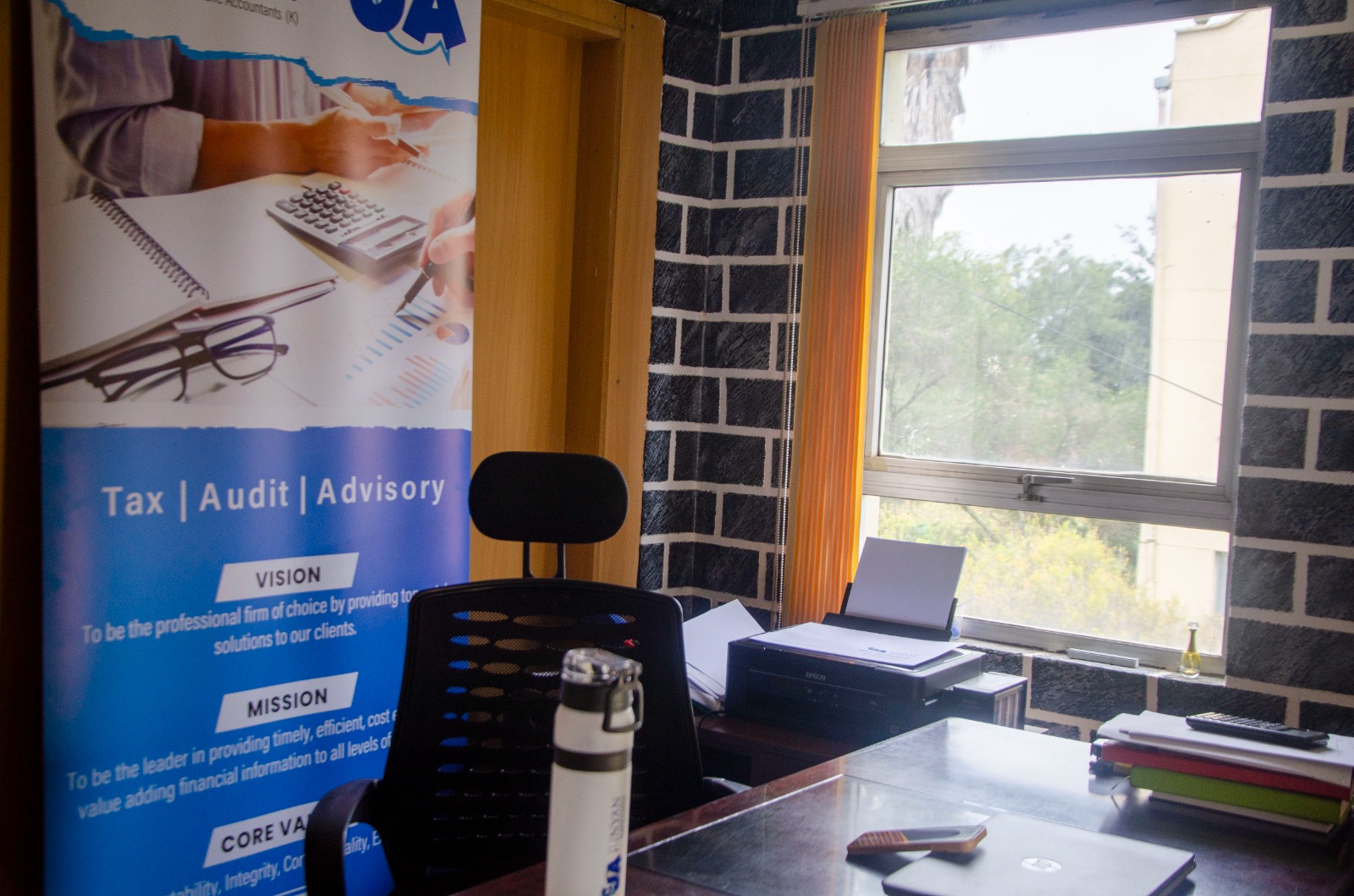Navigating tax matters can sometimes be overwhelming, especially when disagreements arise between taxpayers and the Kenya Revenue Authority (KRA). One of the key remedies available to taxpayers in such situations is the tax objection process. This tax objection process allows individuals and businesses to formally dispute assessments or decisions made by the KRA.
Contents:
1.Understanding the Tax Objection Process in Kenya.
2.What Is a Tax Objection?
3.How do tax objections arise?
4.Steps in the Tax Objection Process.
5.Importance of the Tax Objection Process.
6.Conclusion.
7.FAQ;
What Is a Tax Objection?

A tax objection is a legal response filed by a taxpayer who disagrees with an assessment or decision issued by the KRA. It gives the taxpayer an opportunity to present evidence, documents, or explanations to support their position and seek a review or amendment of the disputed tax liability.
How do tax objections arise?
Contentious tax decisions mostly originate from tax audits that are conducted by the KRA from time to time. A tax audit is a review/examination of an organization’s or individual’s accounts and financial information to ensure information is reported correctly according to the tax laws and to verify the reported amount of tax is correct.
The Audit is conducted by officers of KRA going through records then making a request to a tax payer to make available any such records or information as may be required. Under the provisions of Sections 58 to 61 of the TPA, the Kenya Revenue Authority is vested with far sweeping powers in conducting investigations and seeking any information it considers relevant from a tax payer as follows:
- Section 58 of the TPA gives KRA the authority to inspect goods, records and any other material the authority may deem necessary.
- Section 59 of the TPA also gives power to KRA to compel production of documents.
- Section 60 also gives the Commissioner or any authorized officer the power to search and seize. The only reprieve under this section is that the Commissioner or an authorized officer is not allowed to retain any document or a data storage device seized under this section for a period longer than six months unless the document or data storage device is required for the purposes of any proceedings under the Act or any other written law.
These immense powers of the KRA with regards to investigation/ audit were challenged in the case of Okiya Omtatah Okoiti v Attorney General & another [2020] eKLR Petition No. 156 of 2017 on the basis that Sections 57, 58, 59 and 99 of the TPA infringed on the right to privacy as espoused in Article 31 of the Constitution.
The petition was however dismissed by the Court which was of the view that the provisions were not unconstitutional for infringing on the right to privacy, rather, the provisions were justified limitations to the right since the effect of the limitation of the right was minimal; as the right is only limited in relation to the tax information of the individual and not the individual’s family or private affairs. Nonetheless, the Court also held that the powers granted to the Commissioner are only meant to be engaged where there is doubt about the veracity of an individual’s tax assessment.
Steps in the Tax Objection Process

1. Issuance of an Assessment
The tax objection process begins when the KRA issues an assessment, such as an additional tax demand, penalties, or interest. The taxpayer may disagree with the figures or the basis of the assessment.
2. Filing the Objection
The taxpayer must lodge a Notice of Objection within 30 days from the date of receiving the assessment. This is done through the iTax platform. The notice should clearly state the grounds for objection and be accompanied by relevant supporting documents.
3. Supporting Documentation
For the tax objection process to be valid, the taxpayer must provide:
- Copies of returns or accounts
- Evidence of tax already paid
- Relevant contracts, invoices, or receipts
- Any other documents supporting their position
Failure to provide adequate documentation may result in an invalid objection.
4. KRA’s Review
Once the objection is lodged, the KRA is required to review the case and issue an Objection Decision within 30 days. If KRA fails to respond within this timeframe, the objection is deemed allowed in favor of the taxpayer.
5. Possible Outcomes
The Objection Decision may:
- Confirm the original assessment
- Amend the assessment (reduce or increase liability)
- Vacate the assessment entirely
6. Next Steps if Dissatisfied
If the taxpayer is not satisfied with KRA’s Objection Decision, they can escalate the matter to the Tax Appeals Tribunal (TAT) within 30 days.
Importance of the Tax Objection Process
The tax objection process is vital because it:
- Protects taxpayers from unfair or erroneous assessments
- Provides a fair platform for dispute resolution
- Ensures accountability and transparency in tax administration
- Gives businesses confidence in managing their tax affairs
Conclusion
The tax objection process is an essential safeguard for taxpayers in Kenya. By following the correct procedure, submitting proper documentation, and observing timelines, businesses and individuals can effectively defend themselves against unfair tax demands.
For professional assistance, consulting a tax advisor or objection specialist can greatly increase the chances of a favorable outcome.
Ready to begin tax objection process?

At Junyan & Associates, we specialize in guiding clients through the complexities of the tax objection process. Our team of experienced tax consultants and accountants helps you:
✅ Draft and file strong objections on time
✅ Gather and present compelling supporting evidence
✅ Negotiate effectively with KRA for favorable outcomes
✅ Escalate disputes to the Tax Appeals Tribunal where necessary
With us by your side, you don’t have to navigate tax disputes alone. We ensure your rights are protected and your business remains compliant, so you can focus on growth with peace of mind.
📞 Contact Junyan & Associates today to secure expert support in handling tax objections and achieving the best possible resolution.
FAQ;
1. How does the tax Objection Period Is Determined in Kenya?
Under the Tax Procedures Act, 2015, the objection period is the time limit within which a taxpayer must file a valid Notice of Objection after receiving a tax assessment from the Kenya Revenue Authority (KRA). Starting Point, The clock starts ticking on the date the taxpayer is served with the assessment or decision by KRA. Service can be through: The iTax platform (electronically issued assessments). Official correspondence (emails, letters, or notices). Physical delivery in some cases. The taxpayer has 30 calendar days from the date of service to file a Notice of Objection.
KRA may, at its discretion, allow a late objection if the taxpayer provides:
- A reasonable explanation for the delay, and
- Evidence that they were unable to comply in time (e.g., illness, system failure, or unavoidable circumstances).
Example: If KRA issues an assessment on 1st September 2025, and it is served on the same day via iTax, the taxpayer has until 30th September 2025 to file a Notice of Objection.
2. What Happens if You Don’t Lodge a Tax Objection on Time in Kenya?
The Tax Procedures Act, 2015 gives taxpayers 30 days from the date of service of an assessment or decision by the Kenya Revenue Authority (KRA) to file a Notice of Objection. If you fail to file your tax objection process within the 30-day window, the assessment automatically becomes final and conclusive. This means you are legally required to pay the taxes, penalties, and interest as assessed by KRA.
KRA may, at its discretion, allow you to lodge a late tax objection if: You apply for the extension in writing, you give a reasonable explanation for the delay (e.g., illness, system downtime, unavoidable absence), and you provide supporting evidence for the circumstances that caused the delay. However, if KRA rejects your request for extension, you lose the chance to challenge that assessment through the objection process.
3. Can a Person Object if KRA Denies the Request for Extension of Time?
When a taxpayer misses the 30-day window for lodging a tax objection, they may apply to KRA for an extension of time under the Tax Procedures Act, 2015.
- If KRA grants the extension → the objection can be filed and proceeds normally.
- If KRA denies the extension → the taxpayer cannot lodge an objection because the assessment is deemed final and conclusive.
Options after Denial
Even if KRA refuses the request for extension, the taxpayer is not left without remedies. They can:
- Appeal KRA’s refusal to the Tax Appeals Tribunal (TAT) under Section 52 of the Tax Procedures Act.
- The Tribunal has jurisdiction to review whether KRA’s decision to deny the extension was fair and reasonable.
- If the Tribunal overturns KRA’s denial, the taxpayer may be allowed to proceed with the objection.
- Seek judicial review before the High Court if they believe KRA acted unreasonably, unfairly, or outside its legal authority.
4. Why Should I Hire a Tax Consultant for the Objection Process?
Filing a tax objection may look straightforward, but in practice it involves strict timelines, legal requirements, and technical documentation. A tax consultant helps you avoid mistakes and increases your chances of success. A tax consultant ensures that your tax objection process is well-prepared, supported with the right documents, and filed within deadlines—significantly increasing your chances of success.
Here’s why hiring a tax consultant is highly recommended:
Expert Knowledge of Tax Laws- Tax consultants understand the Tax Procedures Act, KRA regulations, and recent case law. They know the legal grounds that strengthen an objection and how to avoid arguments KRA is likely to dismiss.
Proper Preparation of Documentation– a tax objection process must be supported by accurate financial records, returns, invoices, receipts, and contracts. A consultant ensures the evidence is complete, consistent, and well-presented to KRA.
Compliance with Timelines- missing the 30-day objection deadline or the 60-day decision window can cost you the case. Consultants help you track and meet these strict timelines.
Negotiation Skills– Tax consultants act as intermediaries, engaging KRA on your behalf. Their experience in handling objections gives them an edge in negotiating reductions, waivers, or favorable amendments.
Strategic Escalation-If KRA rejects your tax objection process, a consultant can guide you on the next step — whether to escalate to the Tax Appeals Tribunal (TAT), pursue Alternative Dispute Resolution (ADR), or seek judicial review.
Peace of Mind-Most importantly, a consultant saves you time and stress, allowing you to focus on running your business while they handle the technicalities of the tax objection process.


